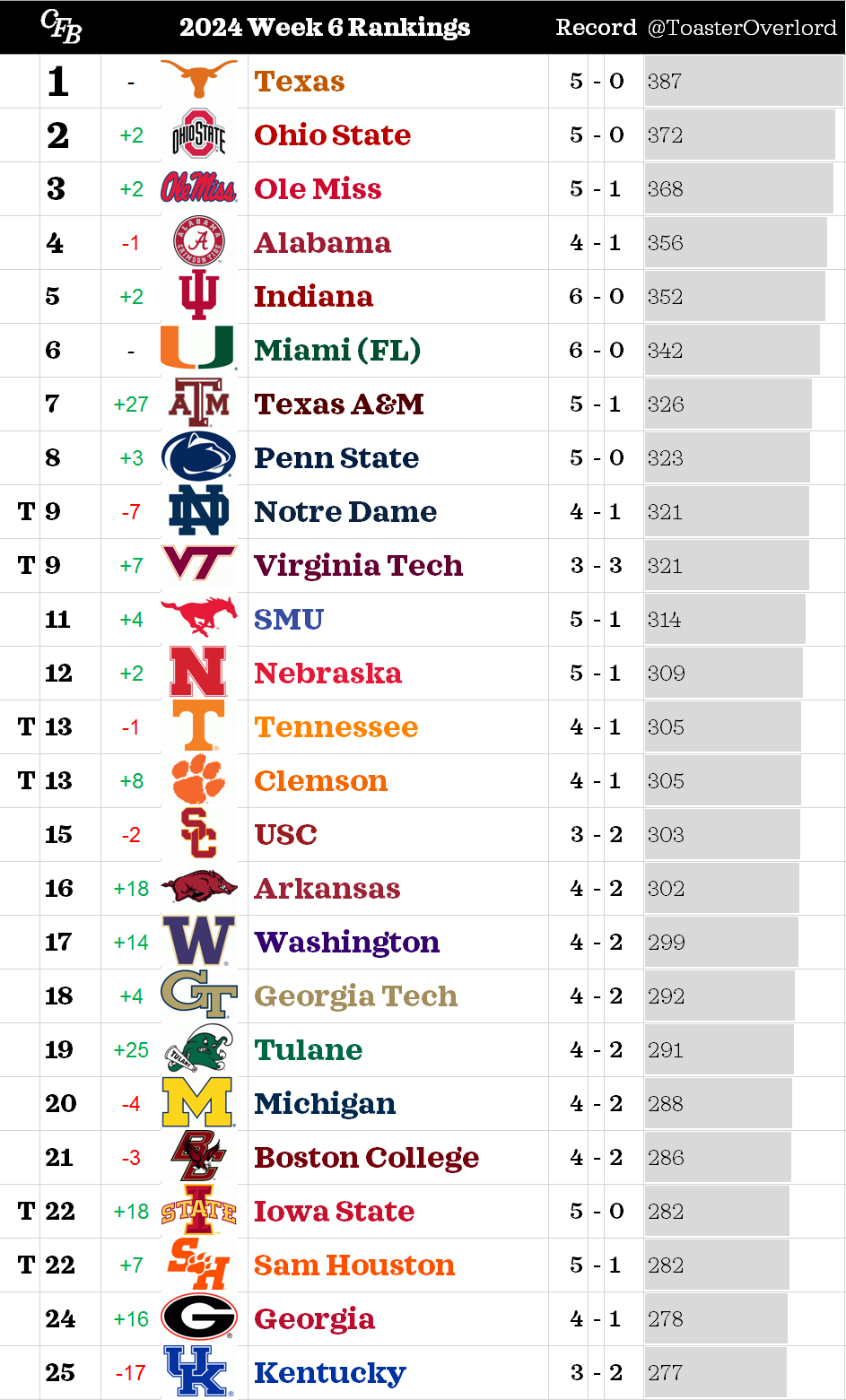- Texas
- Ohio State
- Oregon
- Penn State
- Miami
- Georgia
- Iowa State
- BYU
- Alabama
- Boise State
- Clemson
- Ole Miss
- Tennessee
- Missouri
- Utah
- Texas A&M
- LSU
- Oklahoma
- Notre Dame
- Indiana
- Kansas State
- Pitt
- Army
- Navy
- Liberty
A quick overview of my methodology. I’m sure you can find contradictions, but I do try to stick to this.
At this point in the season, I try to make the ranking 25% how good I think the team actually is, and 75% what the resume says. As we go on, the resume gets more bias.
A few principles that I try to apply.
- If you are 5-0 or better, I’ll put you in. It is hard enough to get there, that even with an easier schedule, it should get you ranked. I do this for 2 reasons. First, I want to reward winning. Second, if greater 6 teams never get ranked despite what they do on the field, why bother to say they are apart of the league? Even if all these greater 6 drop a game, I’ll still try to put one or two of them up there, if I can justify it.
- I try to use a blind resume, where you consider the resume’s content regardless of the name. The biggest effect that this has is that I effectively ignore head to head. You can look at my poll, and complain that I ranked Georgia above Alabama, and cry afoul that Alabama beat Georgia, and should be ahead. I don’t care, because Georgia has a better resume than Alabama. You can make the same complaint against my Texas A&M/Notre Dame ranking. It doesn’t change my results.
- I value bad losses more than I do good wins. Again, going with Alabama and Georgia, I put more weight on the fact that Alabama lost to Vanderbilt, then I do that Alabama beat Georgia. I value reliability. If you can’t show up for the “easy wins”, then I will punish you much more than I will reward you for showing up for the big games.


























